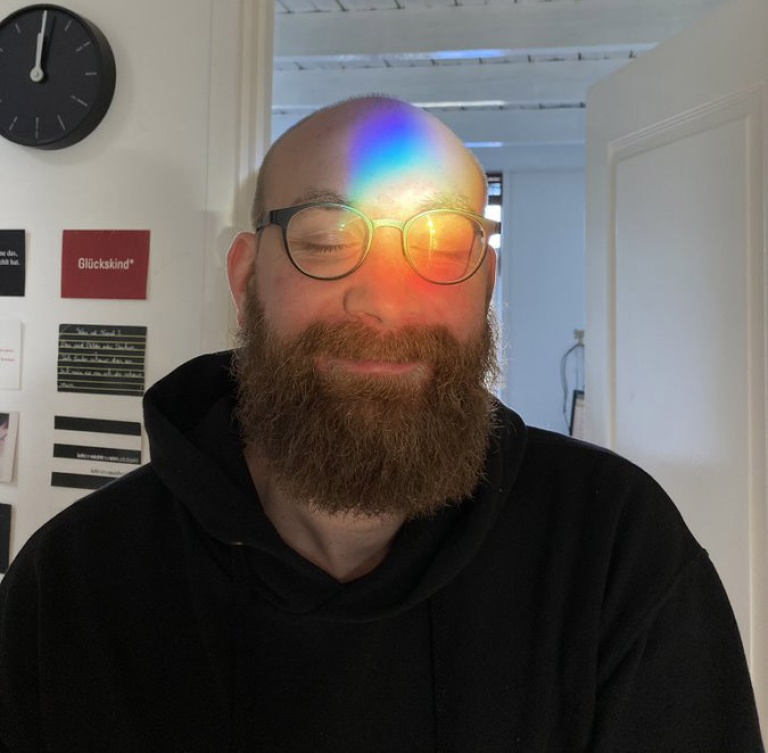The Association for Psychological Science (APS) already rewarded the Janet Taylor Spence Award to NSMD member Eiko Fried earlier this year, but now the actual prize has arrived at his home, drawing rainbows on his walls when the light is good. “I believe that embracing complexity rather than reifying simple stories will facilitate a deeper understanding of mental disorders.”

The Association for Psychological Science (APS) annually awards young scientists who have made exceptional contributions and discoveries early in their careers. ‘These researchers tend to be on the cutting edge of new and exciting fields’, APS states. In an interview on their website, Eiko says: “We have been telling ourselves somewhat oversimplified stories in mental health research for too long. While it’s widely accepted today that mental disorders are comorbid and heterogeneous, and feature both multifinality (i.e., the same set of causal agents can lead to different mental health outcomes) and equifinality (i.e., diverse causes can produce the same disorder), we still ask questions such as ‘what is the main cause for depression’ and ‘what are the genes for obsessive compulsive disorder.’ A more promising question to me seems: What are the biopsychosocial elements that lead to and sustain mental illness, and how do these elements interact to produce the emergent phenomena? I believe that embracing complexity rather than reifying simple stories will facilitate a deeper understanding of mental disorders and ultimately lead to improved efficacy of prevention and intervention. I am convinced that such sophistication needs to happen both at the theoretical level, e.g., via formalized theories, as well as at the statistical level, e.g., via dynamical systems models.”
Read the full interview, or listen to the podcast by APS, with Eiko’s part starting after 19 minutes.